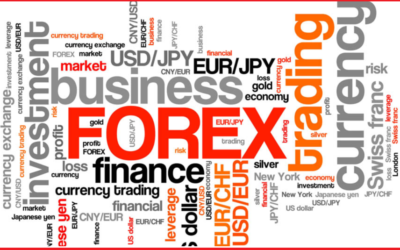CUT YOUR DAMN LOSSES – Why Retail FX Traders Tend to Lose Money
CUT YOUR DAMN LOSSES – Why Retail FX Traders Tend to Lose Money
FX trading is hard. We have all heard the statistics and now, with European brokers, we can see the percentages of FX traders who lose money right on their websites. Some sites are even indicating that the number of traders who lose money is over 80%. There are many reasons and arguments that can be made as to why the majority of FX traders lose money.
As an introducing broker to thousands of traders from around the world, I’ve seen the good traders and bad traders. And in my view, the single largest contributor to client losses is simply risk management.
When it comes to trading, no one has a crystal ball. We can’t predict the future – we can only make informed trading decisions based upon the information available to us. But what does that mean as a trader? Well, if we can’t control the direction of the market, the only things we can control are when we enter our trades and when we exit them. The problem for most retail traders, however, is that they don’t or can’t exit a trade once they’ve put it on. And this is their downfall.
Fail to Plan. Plan to Fail.
Everyone has heard the adage “fail to plan, plan to fail” and most traders (even novice FX traders) have some kind of a plan when they enter their trades. Usually (hopefully) they can tell you why they bought or sold a pair, where they expect the market to go and when/where they will likely take a profit or cut their losses.
In the moments after traders click that button to buy or sell, however, logic and reason go out the window. Why? Because few trades are instant winners. And when a trade starts moving against retail FX traders they often panic, they freeze, they stop thinking. They abandon their plan. The obviously questions is, “what happened to your plan?”. Well, as the former heavyweight boxing champion of the world Mike Tyson once said, “everyone has a plan until you get punched in the mouth.” For the average retail FX trader, a losing trade is like getting punched in the mouth by Mike Tyson.
As a result, these traders abandon their own risk management plan and refuse to exit a trade at the predetermined level. They can’t think clearly and don’t want to admit defeat. And so they hold the position – long after it is already past their original stop out level, long after the reason they got into the trade is no longer valid, long after they’ve lost more money on one trade than they ever intended. And now they are stuck.
Hoping Is Not A Trading Strategy
It’s at this point that traders stop being traders and become hopers. They are no longer trading. They are hoping that the market moves back in their favor. They hope to get back to break even. They ignore the mounting swap fees. They stop looking at other charts, at other trading opportunities and become fixated and married to this one loser of a position that, like an old carton of milk, has expired and should have been thrown out days before.
How do I know this? As an introducing broker, I am am aware of the trading activities and, more importantly, the risk management decisions made by our clients. We work with clients who are very successful FX traders who have a repeatable and scalable plan that they execute over and over again, taking losses when trades don’t pan out and taking winners when they do. But, like the rest of the industry, we also work with many more traders who hold their losses for no reason other than they don’t want to close the trade and realize the loss.
I can’t begin to tell you how many conversations I’ve had with clients who have told me they used the 5 minute chart to enter a trade when a certain technical phenomena occurs, but will hold it for months hoping it comes back to break even. Be realistic – do you really think a 5 minute indicator is still a valid predictor of future market movement 3 months later? The answer is no. Traders need to resume using common sense and what I call the thesis approach to trading. This basically means that you have a thesis for a particular trade – a belief the market will behave in a predictable fashion as a result of some occurrence. However, if and when that thesis is proven invalid – i.e. the market doesn’t behave as you expected – get out of the trade, reevaluate your thesis to make sure it is still sound and look for another opportunity. By way of analogy, if I have a thesis that a car driven into a lake will float, I am going to know pretty quickly if I am right or I am wrong. As soon as that car takes on water and slips beneath the surface, my thesis is wrong and I need to get out of that car. There is no reason for me to wait until the car touches the bottom of the lake to put an end to the experiment –at that point it’s too late.
The evidence of this hoping strategy is staggering. In preparation for this article, I requested and reviewed a random sampling of open positions of our clients from several of our brokers. Out of the 150 accounts in the sample, these were the results:
Total number of open positions – 1,133
Total number of losing positions – 984
Total number of winning positions – 149
Average losing trade value – ($312.48)
Average winning trade value – $41.68
Average duration of a losing trade – 91 days
Average duration of a winning trade – 20 days
What can we learn from this data:
1. Retail traders’ open positions are losing money 87% of the time
2. The average losing trade is more than 7x as large as the average winning trade
3. The average losing trade is held more than 4.5x longer than the average winning trade
There is a joke among brokers about what happens to traders when a position goes against them – they stop becoming traders and start becoming investors. The joke being that they stop trading and just hold their losing positions hoping for them to come back in their favor. Maybe the position will, maybe it won’t. But for 91 days, you’ve missed other opportunities in that currency pair because you couldn’t take the loss and move on.
Taking A Loss Is Part Of A Winning Strategy
The best traders in the world lose – and lose thousands of times over. Losses are part of trading and they know this. But they have a plan and stick to that plan because over time it yields results. They don’t get hung up on losing trades or let them blow up their accounts. They close them as they had planned, move on to scanning for the next opportunity and refocus their minds. I’ll say it again, losing is a part of trading. But, losing an entire account because you refuse to cut a losing position is just dumb. If you want to improve your chances for success in trading, cut your damn losers and find your next winning trade.
—-
Justin D. Hertzberg, Esq. is the CEO of Forest Park FX, a globally regulated FX introdocing broker. Forest Park FX specializes in creating custom FX brokerage and trading solutions for retail traders, service providers, institutional traders, money managers and hedge funds. Forest Park FX offers a wide variety of value-adding services, including market access through the world’s top Forex brokers, cash back rebates for retail traders, built-to-specification trading algorithms, and the sale of trading tools and applications. For more information about Forest Park FX, please visit www.forestparkfx.com.








